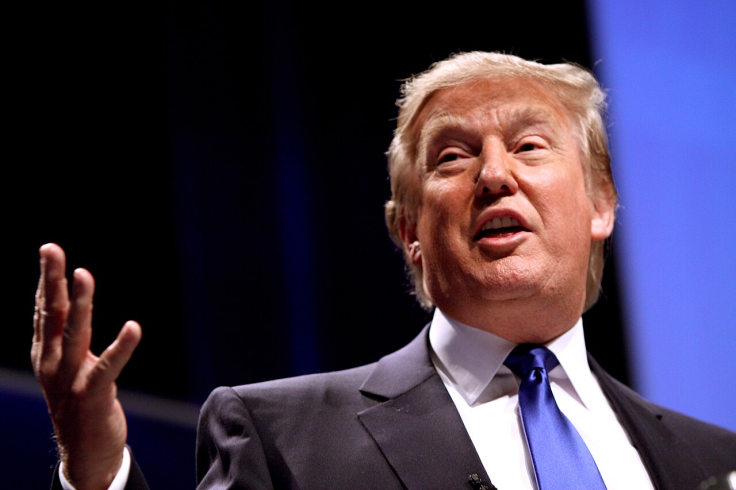Trump's Vow of Granting Green Cards to Foreign Graduates Is Skeptical With His Past Administration’s Record of Immigration Restrictions
ByDespite his administration's history of blocking high-skilled immigrants, Donald Trump recently expressed support for granting green cards to all foreign graduates of U.S. universities.
His remarks during a podcast interview sparked significant attention and debate, highlighting a stark contrast between his past policies and his current statements. This article examines Trump's podcast interview, his record on high-skilled immigration as president, and the practical and political obstacles to his proposal becoming law.

The Podcast Interview
On June 19, 2024, Donald Trump, the Republican presidential candidate, participated in a podcast interview with venture capitalists on the show All-In. Trump stated, "What I want to do and what I will do is you graduate from college. I think you should automatically get a green card as part of your diploma to be able to stay in this country." This bold declaration, which proposes green cards for every college graduate, including those from community colleges, diverges sharply from his prior immigration policies.
Following media interest, Trump's campaign released a statement from Press Secretary Karoline Leavitt, which emphasized a rigorous vetting process for these graduates. Leavitt emphasized that President Trump proposed the strictest vetting process in U.S. history to exclude certain groups before considering skilled graduates for significant contributions to America. This highlights how Trump's proposal is contingent on stringent immigration controls, consistent with his past emphasis on strict policies.
READ MORE : Trump Proposes Granting Green Cards To Foreign Graduates Of US Colleges, Marking Shift In Immigration Stance
Trump's Record on High-Skilled Immigration as President
During his presidency, Donald Trump frequently advocated for "merit-based" immigration. However, his administration implemented numerous restrictions that adversely affected high-skilled immigrants, international students, and H-1B visa holders. The H-1B visa, essential for high-skilled foreign nationals to work in the U.S., faced increased scrutiny under Trump's policies. The rate of denial for initial H-1B employment petitions spiked to 24% in FY 2018 and 21% in FY 2019, exceeding historical norms.
In 2020, a legal settlement required U.S. Citizenship and Immigration Services to stop several restrictive practices, leading to a decrease in the denial rate to 2%. Despite this, Trump's administration continued to enforce policies that hindered the entry of high-skilled workers. In June 2020, Trump used his authority under section 212(f) of the Immigration and Nationality Act to suspend the entry of H-1B, L-1, and other temporary visa holders, along with nearly all categories of immigrants. These actions, unprecedented in their breadth, reflected Trump's overall restrictive approach to high-skilled immigration.
Practical and Political Obstacles to Trump's Proposal Becoming Law
Despite Trump's recent statements, several factors make it unlikely that his proposal to grant green cards to all foreign graduates of U.S. universities will become law if he is elected. His long-time immigration adviser, Stephen Miller, is a significant obstacle. Miller, known for his efforts to reduce legal immigration, would likely oppose any policy that could increase the number of immigrants to America by one million annually. His influence was evident in past immigration policies that restricted even high-skilled immigration.
Additionally, political dynamics within Congress present substantial hurdles. Many Republicans, including influential figures like Sen. Mike Lee and Rep. Chip Roy, have expressed opposition to Trump's proposal. Moreover, historical resistance to similar measures, such as the 2022 negotiations over the CHIPS and Science Act, illustrates the bipartisan challenges such a policy would face. During these negotiations, Sen. Charles Grassley blocked an exemption from green card limits for international graduate students in STEM fields despite the provision's potential to benefit the U.S. economy.
Trump's recent advocacy for an expansive immigration proposal may be an attempt to appeal to the podcast's venture capitalist hosts, one of whom hosted a fundraiser for him in Silicon Valley. This context suggests that Trump's statements might be more about political posturing than a genuine legislative priority. Given his track record and the expected opposition from key advisers and legislators, it is improbable that Trump will pursue this proposal seriously if re-elected.
Donald Trump's mixed messages on high-skilled immigration reflect a complex interplay of political strategy and past policy. While his recent statements on granting green cards to foreign graduates of U.S. universities have garnered attention, the practical and political challenges suggest that such a policy is unlikely to materialize under his administration.
RELATED ARTICLE : Trump's Potential Re-Election Spells Overhaul For Higher Education
© 2026 University Herald, All rights reserved. Do not reproduce without permission.








